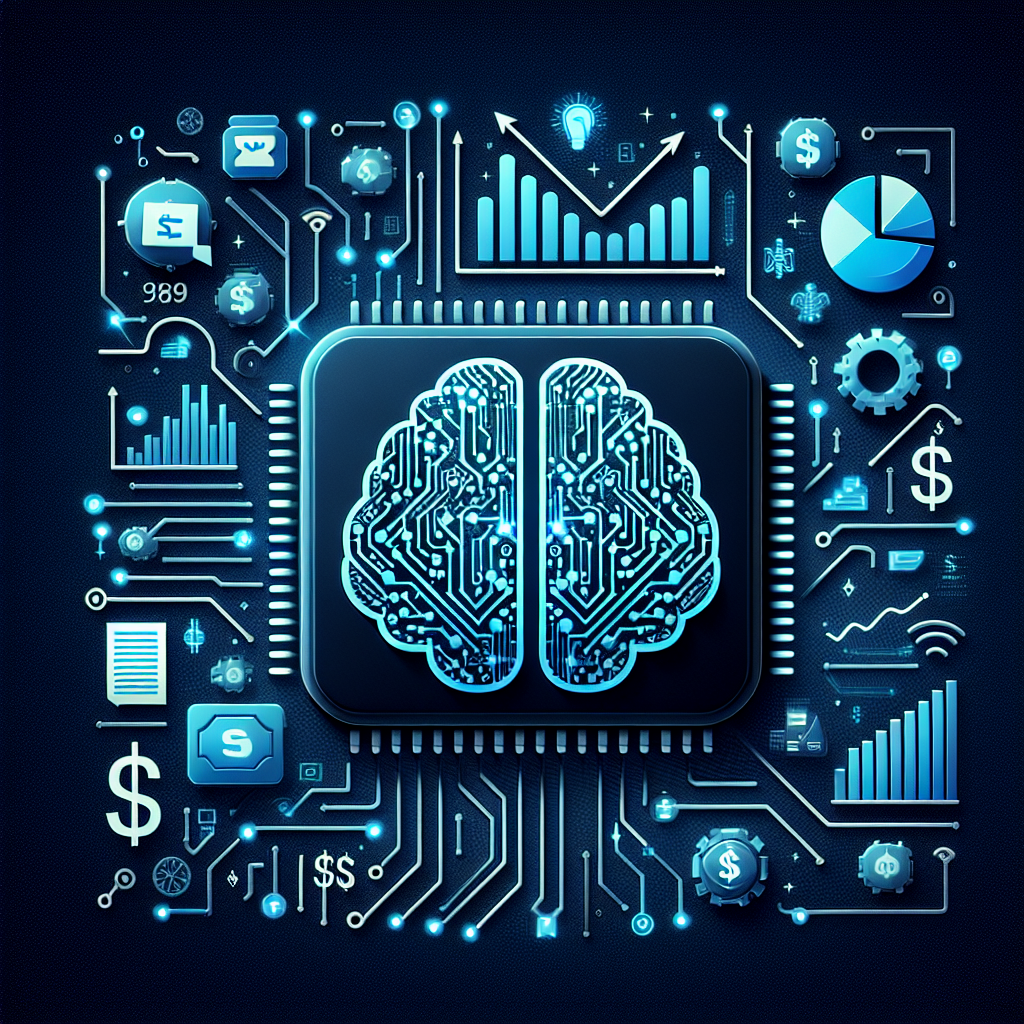In recent years, artificial intelligence (AI) has become a crucial tool for marketers looking to maximize their return on investment (ROI). AI has the ability to analyze vast amounts of data at speeds that are impossible for humans to match, allowing marketers to make more informed decisions and target their campaigns more effectively. In this article, we will explore the impact of AI on marketing ROI and discuss how businesses can leverage this technology to drive better results.
Impact of AI on Marketing ROI
1. Personalization: One of the key ways that AI can impact marketing ROI is through personalized messaging. By analyzing customer data and behavior, AI can help marketers create highly targeted and personalized campaigns that are more likely to resonate with their audience. This level of personalization can lead to higher conversion rates and ultimately, a higher ROI.
2. Predictive Analytics: AI can also help marketers predict future trends and behaviors based on historical data. By using algorithms to analyze patterns and correlations in data, AI can help marketers identify opportunities and risks before they arise. This predictive capability can help businesses allocate resources more effectively and make better decisions that drive ROI.
3. Automation: AI can automate many repetitive tasks that would otherwise require human intervention. This includes tasks such as data analysis, campaign optimization, and customer segmentation. By automating these processes, marketers can save time and resources, allowing them to focus on more strategic initiatives that drive ROI.
4. Real-time Insights: AI can provide marketers with real-time insights into campaign performance and customer behavior. By monitoring data in real-time, marketers can quickly identify trends and make adjustments to their campaigns on the fly. This agility can help businesses capitalize on opportunities and avoid potential pitfalls, ultimately leading to a higher ROI.
5. Improved Customer Experience: AI can also help marketers improve the overall customer experience. By analyzing customer data, AI can help businesses understand their customers’ preferences and behavior, allowing them to tailor their messaging and offerings accordingly. This personalized approach can lead to higher customer satisfaction and loyalty, ultimately driving ROI.
How Businesses Can Leverage AI for Marketing ROI
1. Invest in AI tools: To leverage the full potential of AI for marketing ROI, businesses should invest in AI tools and platforms that are specifically designed for marketing purposes. These tools can help businesses analyze data, automate tasks, and generate insights that drive ROI.
2. Integrate AI into existing systems: Businesses should also look for ways to integrate AI into their existing marketing systems and processes. This can help businesses leverage AI capabilities without disrupting their current operations, allowing for a seamless transition to AI-driven marketing strategies.
3. Train employees: To effectively leverage AI for marketing ROI, businesses should also invest in training their employees on how to use AI tools and platforms. By empowering employees with the skills and knowledge to leverage AI, businesses can ensure that they are maximizing the potential of this technology.
4. Measure and optimize: Finally, businesses should continually measure the impact of AI on their marketing ROI and optimize their strategies accordingly. By monitoring key performance indicators and making data-driven decisions, businesses can ensure that they are getting the most out of their AI investments.
FAQs
Q: How does AI impact marketing ROI?
A: AI can impact marketing ROI in a number of ways, including through personalized messaging, predictive analytics, automation, real-time insights, and improved customer experience.
Q: What are some examples of AI tools that can help businesses improve marketing ROI?
A: Some examples of AI tools that can help businesses improve marketing ROI include customer segmentation tools, predictive analytics platforms, chatbots, and recommendation engines.
Q: How can businesses measure the impact of AI on marketing ROI?
A: Businesses can measure the impact of AI on marketing ROI by monitoring key performance indicators such as conversion rates, customer acquisition costs, and customer lifetime value. By tracking these metrics over time, businesses can assess the impact of AI on their marketing efforts.
Q: What are some common challenges businesses face when implementing AI for marketing ROI?
A: Some common challenges businesses face when implementing AI for marketing ROI include data privacy concerns, integration issues with existing systems, and the need for employee training. By addressing these challenges proactively, businesses can maximize the impact of AI on their marketing ROI.

